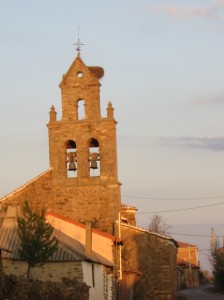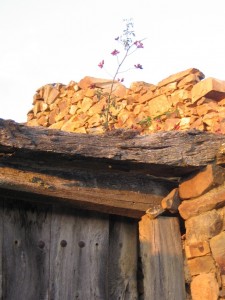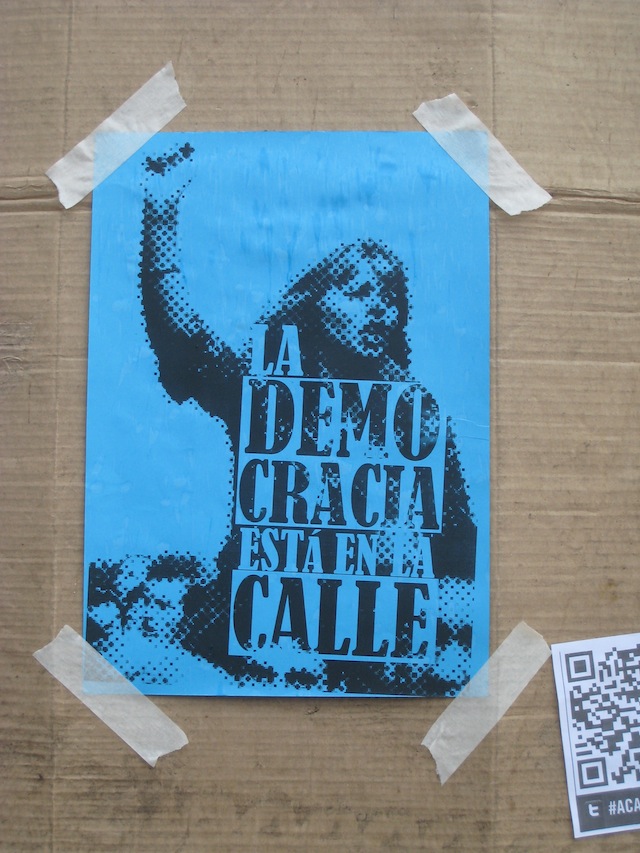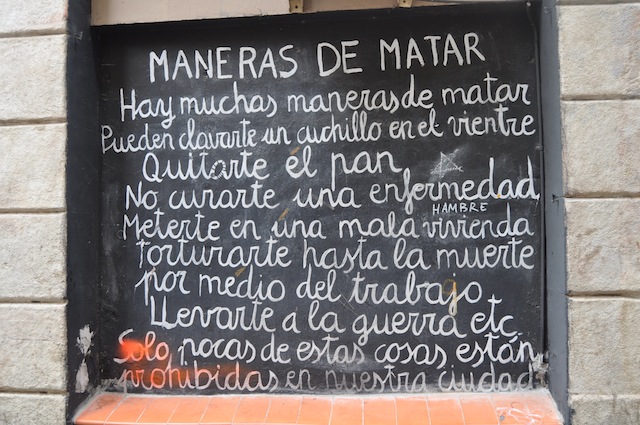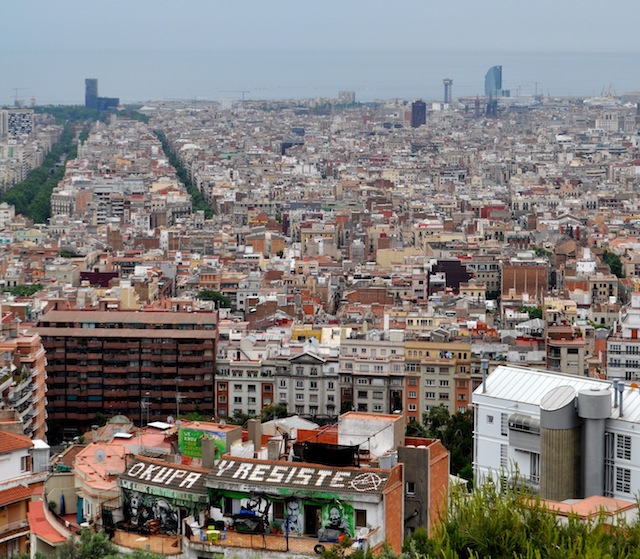 It’s a time of giving, that’s what we are told. Peace and goodwill.
It’s a time of giving, that’s what we are told. Peace and goodwill.
It doesn’t always look like that! People are harried, brows are furrowed and parking spaces are fought over like miners’ rights.
So, in an attempt to simplify your life, and as a means of honouring some magnificent story-tellers, can I make an offering? Here’s a list of discovered – or rediscovered – books I’ve gobbled and loved recently. Give a book and you give a chunk of another person – usually their best bits. All of these are wonder-full “bits” of phenomenal story-teller citizens. Wander into your local independent bookseller (they are the keepers of the flame) and place your order. They will wrap the gifts while you browse for a story to cool your yule.
Helen Garner, Helen Garner 
I’ve been immersing myself in her words again, from her beginnings with Monkey Grip to her most recent book The Spare Room. It’s like taking a masterclass. Helen Garner has given us ourselves, over and over, in intimate, up-close-and-personal portraits that haunt, sustain and provoke. She has also given us places that become sacred sites. When I moved to Melbourne, the first thing I wanted to see was Monkey Grip‘s Aqua Profonda sign at the Fitzroy Pool. I was coming from Sydney, a city of shimmering surfaces, and moving south seemed like a pilgrimage to Helen and her deeper water.
I could go through every one of her books telling you the tattoos they’ve left on my reader’s skin. You could do the same, I know – because whatever Helen Garner writes, fiction or non-fiction, the heart of it will be true, no matter the cost to her. That’s why it is impossible to avert my eyes from a word she writes.
Small publishing houses
My book was published by Melbourne University Publishing under their Victory imprint. None of that means much to a reader, really, but I have learned, in my year as a novice in the world of books, that small, independent houses are vital to the ecology of our reading world, and that they are often the discoverers of new voices and brave stories. Currently I’m loving the clean prose and insider stories in MUP’s latest release Speechless – A Year In My Father’s Business by James Button. Highly recommended if you are curious about the machinations of contemporary Oz politics but have an aversion to the heat and partisanship of so much that is in the ether.
But lest you think I am just going to do a hard sell for my own publisher, please read on…
 I’ve recently read several books from Scribe, another Melbourne marvel in the publishing world. Belatedly, I got to Tony Birch’s dark but hope-laden novel, Shadowboxing. Utterly beautiful. The new collection of stories from genius Cate Kennedy is called Like A House on Fire. Difficult to imagine her topping her previous collection Dark Roots, but she has. And if you want a great poem or ten, Get a copy of The Taste of River Water. Her poems are distilled epics. Pilgrimage by Jacinta Halloran gave me a different kind of journey to my walk, but asked some similar questions about faith and belief. And love. She is a near-neighbour who also presented her book at the wonderful Grumpy Swimmer bookstore in Elwood. All the others in the image are beside my bed waiting. Hooray. Summer bodes well.
I’ve recently read several books from Scribe, another Melbourne marvel in the publishing world. Belatedly, I got to Tony Birch’s dark but hope-laden novel, Shadowboxing. Utterly beautiful. The new collection of stories from genius Cate Kennedy is called Like A House on Fire. Difficult to imagine her topping her previous collection Dark Roots, but she has. And if you want a great poem or ten, Get a copy of The Taste of River Water. Her poems are distilled epics. Pilgrimage by Jacinta Halloran gave me a different kind of journey to my walk, but asked some similar questions about faith and belief. And love. She is a near-neighbour who also presented her book at the wonderful Grumpy Swimmer bookstore in Elwood. All the others in the image are beside my bed waiting. Hooray. Summer bodes well.
 Just last week, Wakefield Press in Adelaide launched Mug Shots by Barry Oakley, esteemed playwright and scallywag. It’s a memoir with the same literary qualities as the cover shot – the raised eyebrow, the wry smile and the piercing gaze. I give thanks to a wise compañero for gifting it to me. There is immense pleasure to be had in reading a book simultaneously with those we love.
Just last week, Wakefield Press in Adelaide launched Mug Shots by Barry Oakley, esteemed playwright and scallywag. It’s a memoir with the same literary qualities as the cover shot – the raised eyebrow, the wry smile and the piercing gaze. I give thanks to a wise compañero for gifting it to me. There is immense pleasure to be had in reading a book simultaneously with those we love.
Meanwhile, I went to the very happy launch of a new book from Brolga Publishing in Melbourne. It has the seductive title Of Rivers, Baguettes And Billabongs, and is the work of a twinkly-eyed writer and winemaker called Reg Egan. He also happens to be the dad of one of my heroic sinners. Reg’s book is delectable, investigating whether it is possible to love two countries equally and to be loyal to both. You can imagine why I might enjoy it, but Reg sings his hymn to France. He makes me think I may yet be unfaithful to Spain…. No. Not possible! But tempting…
Blasts From The Past
 First published back in 1973, Lillian Hellman’s timeless memoir Pentimento is a book I’ve owned for as long as I can remember. I lend it, lose it and gift it – then re-purchase it. The opening paragraphs are perhaps my favourite of any book, and the remainder does not disappoint. By the way, my favourite ending to any book can be found in Timebends, Arthur Milller’s exquisitely wrought autobiography. If you have not read it, do. Please. It helps that both these writers have big stories to tell about big people and events. (Apologies for not posting a cover picture of the Miller – it’s on loan!)
First published back in 1973, Lillian Hellman’s timeless memoir Pentimento is a book I’ve owned for as long as I can remember. I lend it, lose it and gift it – then re-purchase it. The opening paragraphs are perhaps my favourite of any book, and the remainder does not disappoint. By the way, my favourite ending to any book can be found in Timebends, Arthur Milller’s exquisitely wrought autobiography. If you have not read it, do. Please. It helps that both these writers have big stories to tell about big people and events. (Apologies for not posting a cover picture of the Miller – it’s on loan!)
The Great Arch, by Vicki Hastrich, was only published four years ago, but it felt like a classic to me. Wise, ambitious, intimate and yet sprawling, it tells the story of the Sydney Harbour Bridge, and Ralph, the Rector at Lavender Bay, who falls in love with the great arch. But that is the tip of an enormous iceberg, and the story is told in many voices and forms. I can’t believe I missed this when it came out, but I am eternally grateful to Charlotte Wood for introducing me to Vicki Hastrich’s writing. A gift beyond compare.
I know I have forgotten someone. There are dozens of books I covet, and piles here beside me waiting to be read, but I think it only fair to report on those I’ve experienced. I haven’t jogged your memory about the work of another favourite, Michael Cunningham, or suggested you lash out on some poems by Rumi, or that you get your kids a copy of something by Shaun Tan. I’m remiss. I’m sorry. Please don’t forget there are two earlier posts about books here and here, which do at least supplement my addled blonde pre-Christmas dizziness.
All three book posts talk about giving. Funny, because many of the books were gifts I gave myself! But I always think of a book as a potential gift. Sharing a story has been part of my life since that Owl sailed off with the Pussycat, and Mary Grant Bruce’s Norah of Billabong showed me that a little girl’s bush life was worthy of being a story. Choosing a book to give is as close as I will ever get to being a psychologist, as I respond to my friends’ foibles and fabulousness via the shelves of a good bookstore. I’m elated when a friend tells me they have loved a book I’ve found for them, and intrigued when a friend doesn’t like a book that has sung to me. We don’t have to agree. Disagreement over a book can lead to a deepening of friendship. Why? Really? I never knew that!
And so it goes.
Wherever you are as you prepare for this season, if you do celebrate it with an exchange of gifts, let some of them be stories. They are the gifts that define us; the gifts that expand us. Those black shapes on a page or a screen are the trails left as human hearts were being mapped. Caminos, every one…
Buen camino, fellow readers. Aren’t we lucky to be able to share such tales?
And gracias to storytellers everywhere. Without the books I’ve read and loved – and those I’ve rejected, too – my life would be a barren place, and I would never have dared to try to tell stories of my own.

Thank you to all of you who subscribe or visit.
Thank you for welcoming Sinning Across Spain into the world.
You have been MY gifts in this Year of Wonders.
(Now that’s another great book, don’t you reckon?)
P.S. Please take a minute to read the comments on this post. More great recommendations. Not that I’m surprised – your comments are always rich with insight and observations.
Like this:
Like Loading...













